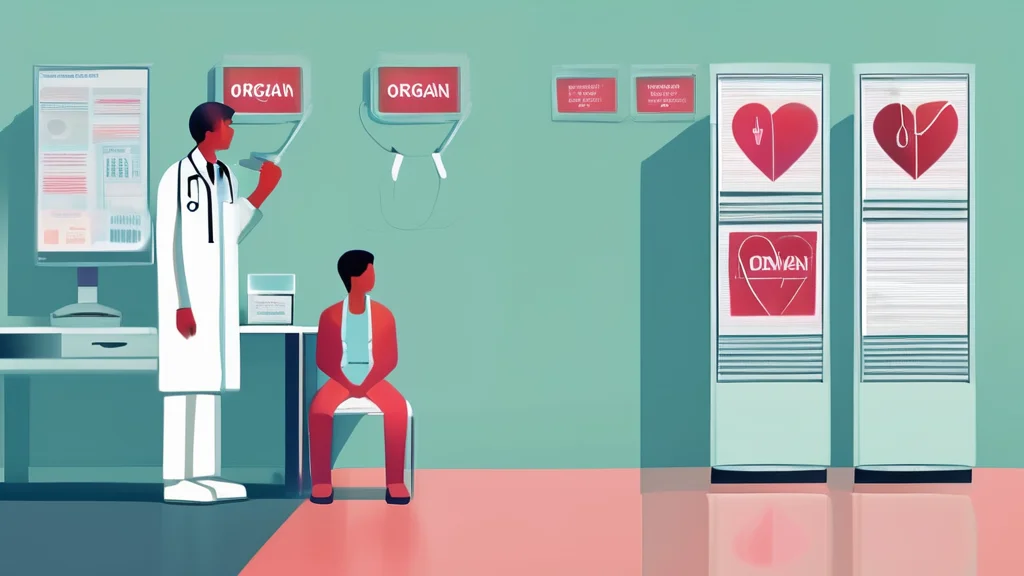The Ethical Tightrope of Organ Donation: Balancing Demand and Donor Rights
Balancing the Surge in Transplants with Ethical Considerations

- Increased demand for organ transplants raises ethical concerns.
- Donation After Circulatory Death (DCD) is on the rise.
- Cases of premature and non-consensual organ retrieval highlight systemic issues.
- Experts call for reforms to ensure donor safety and informed consent.
The Organ Donation Dilemma: A Double-Edged Sword
Organ donation is often hailed as a miracle of modern medicine, saving lives that would otherwise be lost. Yet, behind the scenes of this lifesaving process lies a complex web of ethical and operational challenges. The United States’ organ donation system, designed to optimize the retrieval and transplantation of organs, is increasingly under the microscope for prioritizing quantity over donor safety.
The Rise of Donation After Circulatory Death
Traditionally, organ donations have come from individuals declared brain-dead, a state where the brain has irreversibly ceased functioning. However, in recent years, there has been a significant shift towards Donation After Circulatory Death (DCD). In 2022 alone, DCD accounted for one-third of all organ donations, amounting to approximately 20,000 organs, a threefold increase from five years prior. While DCD has expanded the pool of available organs, it has also introduced new ethical complexities and operational challenges.
The Mechanics of DCD
DCD involves retrieving organs from donors who are not brain-dead but have suffered severe, irreversible brain injuries. Life support is withdrawn, and once the heart stops beating and death is pronounced, organs are harvested. This process, while increasing organ availability, can be fraught with ambiguity and emotional distress for the families involved.
Cases Illustrating the Ethical Quandary
Several high-profile cases have brought the ethical challenges of DCD into sharp focus. In New Mexico, a woman, initially prepared for organ donation, regained consciousness days after the process was initiated. Her family had expressed concerns, but the push for organ retrieval overshadowed their voices. Similarly, in Florida, a man exhibited signs of consciousness yet was still withdrawn from life support. These cases are not isolated incidents but indicative of a broader pattern of rushed decision-making within the organ donation system.
The Role of Donation Coordinators
Donation coordinators, who are responsible for facilitating organ retrieval, often find themselves in a challenging position. They must balance the urgent need for organs with the ethical obligation to respect donor consent and protect donor welfare. In some instances, as seen in West Virginia, coordinators have been criticized for pressuring individuals in vulnerable states to consent to organ donation.
The Pressure to Increase Organ Availability
The demand for organs far outstrips supply, with over 100,000 individuals on the national transplant waiting list. This disparity creates immense pressure to increase organ availability, leading to aggressive tactics and, at times, ethical oversights. While the intent is to save lives, the methods employed can undermine public trust in the organ donation system.
Striking a Balance
Ethicists argue that while increasing the organ supply is crucial, it should not come at the expense of donor rights and safety. Dr. Michael Shapiro, a leading bioethicist, emphasizes the need for clear, transparent protocols that prioritize informed consent and protect vulnerable individuals. “We must ensure that the drive to save lives does not eclipse the fundamental rights of donors,” he asserts.
Counterarguments and Alternative Perspectives
Proponents of the current system argue that the benefits of increased organ availability outweigh the potential risks. They contend that stringent protocols and oversight mechanisms are already in place to safeguard donor rights. However, critics point out that these measures are often inadequately enforced, leading to incidents of premature or non-consensual organ retrieval.
The Need for Systemic Reform
There is a growing consensus among experts for systemic reform within the organ donation framework. Recommendations include enhancing oversight, improving training for donation coordinators, and implementing robust consent processes. Additionally, public awareness campaigns can play a crucial role in educating potential donors and their families about the complexities of organ donation.
Conclusion: Towards a More Ethical Organ Donation System
The organ donation system in the United States stands at a critical juncture. While the need for organs is undeniable, the methods employed to meet this demand must align with ethical standards and respect for donor rights. By addressing the current system’s shortcomings and implementing comprehensive reforms, we can create a more balanced and just organ donation process.
As we move forward, it is imperative to continue this dialogue, considering diverse perspectives and prioritizing the welfare of both donors and recipients. What measures do you believe are necessary to ensure ethical organ donation practices? Share your thoughts in the comments below.